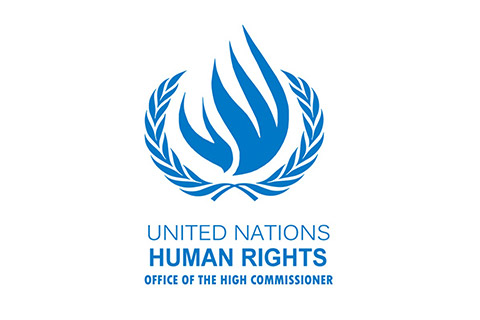The UN Human Rights Office issued today its long-awaited report on business enterprises involved in certain activities relating to settlements in the Occupied Palestinian Territory, according to a press release.
The report came in response to a specific request by the UN Human Rights Council, contained in a March 2016 resolution, that mandated the Office to produce a database of business enterprises involved in such activities.
In an interim report presented to the Human Rights Council in March 2018 by the then High Commissioner, Zeid Ra’ad Al Hussein, the UN Human Rights Office noted it had reviewed information that was publicly available, or had been received from a variety of sources, about an initial 307 companies. After further research, the total number reviewed increased to 321. Of these, a total of 206 companies were considered for further assessment, said the press release.
The report released today sets out conclusions following further communications with business entities, as well as a thorough review and assessment of all information available. It identifies 112 business entities which the UN Human Rights Office, on the basis of the information it has gathered, has reasonable grounds to conclude have been involved in one or more of the specific activities referenced in Human Rights Council resolution 31/36.
Of the 112 business entities identified in the report, 94 are domiciled in Israel and 18 in six other States. During the complex process of drawing up the database, the Office consulted the UN Working Group on Business and Human Rights, and held widespread discussions with numerous States, civil society organizations, think tanks, academics and others, as well as having extensive interactions with the companies themselves, according to the press release.
The report makes clear that the reference to these business entities is not, and does not purport to be, a judicial or quasi-judicial process. While the settlements as such are regarded as illegal under international law, this report does not provide a legal characterization of the activities in question, or of business enterprises’ involvement in them. Any further steps with respect to the continuation of this mandate will be a matter for the Member States of the Human Rights Council, which will consider the report during the Council’s next session, beginning on 24 February.
“I am conscious this issue has been, and will continue to be, highly contentious,” said Michelle Bachelet, the current High Commissioner for Human Rights. “However, after an extensive and meticulous review process, we are satisfied this fact-based report reflects the serious consideration that has been given to this unprecedented and highly complex mandate, and that it responds appropriately to the Human Rights Council’s request contained in resolution 31/36,” Bachelet said.
Human Rights Council resolution 31/36, adopted on 24 March 2016, requested the Office of the UN High Commissioner for Human Rights to produce a report to follow up on the 2013 report of the Independent International Fact-Finding Mission to investigate the implications of the Israeli settlements on the civil, political, economic, social and cultural rights of the Palestinian people throughout the Occupied Palestinian Territory, including East Jerusalem (A/HRC/22/63). The resolution defined the parameters of the current report by reference to ten specific activities listed in Paragraph 96 of the Fact-Finding Mission’s report. Human Rights Council resolution 31/36 was adopted with 32 States in favor, none against and 15 abstentions.
It recalls reports of the UN Secretary-General, resolutions of the UN General Assembly and Security Council, an advisory opinion of the International Court of Justice and the opinions of several human rights bodies reaffirming the illegality of the Israeli settlements in the Occupied Palestinian Territory, including in East Jerusalem.



